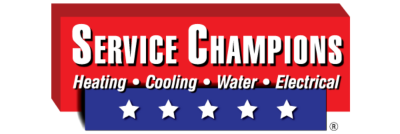How to Prepare Your Home for Wildfire Season

July 11, 2024
With wildfires becoming more frequent and severe, especially in California, it’s very important to get your home ready to face these natural disasters. Being proactive can help keep your home safe and protect your family.
We will go over a few easy and effective tips. From clearing space around your house to prepping your HVAC system, these steps can help keep your home safe when it matters most.
We will also discuss who to contact for further wildfire information and prepare you for potential power shut offs in your area.
1. Most Common Threats to Homes During a Wildfire
Research on why some homes are destroyed and why others survive indicates that embers and small flames are the primary cause of ignition for most home fires caused by wildfires. Embers, which are burning fragments of wood or vegetation, can be carried by wind for over a mile, leading to spot fires and igniting homes, debris, and other objects.
The “immediate zone” is the area between 0 and 5 feet from the furthest attached exterior point of the home. This is the most important zone to prepare during wildfire season as it is the most vulnerable to embers. So, take action (steps are in section 2) with the immediate zone first, and then move on to the “intermediate zone”, the area between 5 and 30 feet from the home’s exterior.
2. Home Ignition Zone Preparation Checklist
How to prepare your home, making it safer from embers and radiant heat:
Clean roofs and gutters of dead leaves, debris, and pine needles (easy kindling for embers)
Replace or repair any loose or missing shingles or roof tiles (prevents embers from getting through)
Install 1/8-inch metal mesh screening in vents (to prevent embers from passing through)
Clean debris from exterior attic vents
Repair or replace damaged or loose window screens and any cracked/broken windows
Move any flammable objects away from wall exteriors such as mulch, leaves, pine needles, and firewood piles
Remove any flammable material stored under decks or porches
3. Running HVAC Systems During Wildfire Season
Here are some tips on how to operate your HVAC system to improve home air quality during the wildfire season.
Shut all doors and windows
Use fans to stay cool
Avoid smoking cigarettes and burning candles
Invest in an air purification system
If your HVAC system has a fresh air intake, set it to recirculate mode or shut the outdoor intake damper
Avoid using an evaporative cooler as it can result in more smoke being brought inside
Keep a supply of N95 masks readily available
When the air quality improves, air out your home by opening windows and enabling the fresh air intake on your HVAC system
4. Preparing For Power Outages During Wildfires
Here is what you need to know and stay safe during planned and un-planned power outages:
Manual Operation Knowledge: Know how to open garage doors and gates without power
Utility Controls: Understand your home’s utility boxes for electricity, water, and gas
Emergency Supply Kit: Assemble a bag that contains essentials such as water, coolers, non-perishable foods, medications, flashlights, radio, and phone chargers
Vehicles: Make sure your vehicles are operational and have at least a tank of fuel
Generator Safety: Understand your generator’s safety guidelines, know how to use it, where to connect it, what cords to use, and the electrical load rating
Phone & Updates: Always have a charged cell phone ready to stay up-to-date with the latest messages from authorities
Public Safety Power Shutoffs (PSPS) are when power is turned off to help prevent wildfire. Visit the PG&E website to learn more regarding PSPS in your area: https://pgealerts.alerts.pge.com/psps-updates/
To contact PG&E call: 1 (877) 660-6789
Contact Service Champions:
Contact Service Champions to get your HVAC system, electrical wiring, and plumbing system prepared for wildfire season.
Call us today at: (833) 600-0991
Or click here to book a job online
